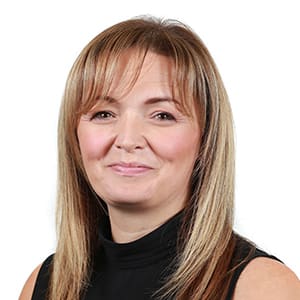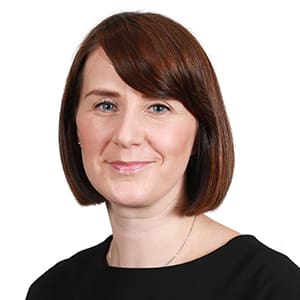Celebrating women in leadership
To mark International Women’s Day, we’re raising awareness of women in leadership and how organisations can achieve their best when there is a well-balanced team in charge of growing and developing their business.
It’s something we feel extremely passionate about across the NRL Group, and we’re proud to say that two thirds of our Recruitment business leaders are female. With a similar proportion of our Group support office departments managed by experienced female leaders.
Insight from the FTSE Women Leaders Review encouragingly saw an increase in women holding company board positions at the FTSE 100 firms, now standing at nearly 40%. However, at executive director level, just 13.5% of positions are held by female leaders. This study demonstrates that there is still a lot to do to address the balance, across all UK businesses not just the larger organisations on the FTSE 100 index.
We sat down and spoke to our own fantastic female leaders, as they reflect on their own career development and how they feel they can help to make a difference.

Sarah Collins – Group Head of Finance
Were you encouraged to aspire to be a business leader when you were in school, and do you think this focus has increased for your own children to set their sights high up the career ladder?
Was I encouraged to be a business leader throughout school? ABSOLUTELY. I was lucky enough to have some fantastic mentors at every stage of my academic life.
At 9 years old, my Primary School Headmaster contacted my parents to discuss how pleased he was with the level I was working at with mathematics and he wanted to keep pushing this skill. This was then passed up to secondary school where the development and mentoring continued – I had a brilliant Business Studies teacher who steered me towards an accountancy degree, even helping me complete university application forms.
After obtaining my degree I went on to study for the ACA chartered accountancy qualification with a Top 10 accountancy firm. There were many fantastic mentors here and a very structured graduate programme which was not only geared towards passing exams, but also put a lot of emphasis on training in management and leadership skills.
Some would say it’s ironic that 98% of the mentors throughout my academic life where actually male, especially as this is going back 20 years when accountancy was still very much seen as a man’s profession.
Moving on 20 years and now working within the nuclear engineering industry, it’s liberating to see so many females entering professions that were once considered daunting to follow because of their male-orientated perception.
I obviously can’t speak for everyone’s experience but that was mine and it’s very reassuring as the mother of two girls, to see that they will have the confidence and support to further a career in whatever path they choose, regardless of gender.

Ruth Harper– Group Head of Marketing
Leading the marketing department for an organisation that focuses on engineering recruitment and contracting services must provide some personally rewarding opportunities to engage females in hugely under represented sectors?
It absolutely does. We are all collectively thrilled when we see a talented and skilled woman progress in their career, return to work after maternity leave or pivot as only women can and enter a completely new sector and thrive in a new working environment.
Whilst it still shouldn’t have to be so, women with a career goal are tenacious and rightly single minded in achieving their aspirations – something we revel in supporting. This drive and purpose is something every business in our sector can benefit from. Championing their skill sets and experience is something we take a huge amount of pride in – but the calibre of women out there makes our jobs straight forward and a pleasure to promote.
However, I am under no illusions about how much more needs to be done – both for women already in established careers and those still trying to navigate their choices at the start of their journey. The more organisations who have the mentoring programmes and support in place to allow these women to thrive, the better.

Emma Lowden – Regional Director, North East
Our Sunderland Recruitment branch has a longstanding history of females in the team developing their careers with NRL. It must be extremely rewarding to watch these women grow as individuals and colleagues?
It definitely is, and it is one of the favourite parts of my role!
Our team is made up of women who started with NRL as either an Apprentice or Resourcer, and through dedication and hard work have developed successful career paths.
What is particularly rewarding is seeing women starting in a generic role and then watching them find a niche they excel at, come into their own and then focus on progressing their careers on their own individual paths.
We have recently welcome two female graduates to the team, who are embracing their new roles, and I am excited to see which direction their career paths will take.
I am honoured to work with these intelligent, inspiring, hard-working women, who support each other to be the best they can.

Rebecca Graves – Branch Director, Egremont
You’ve worked within the highly regulated nuclear industry as a female leader for some time now. How important is it that women are represented at leadership level?
The UK has a clear objective to become a leading nuclear nation. Our Government has detailed their mission to develop a vibrant UK nuclear industry that is an area of economic and strategic national strength. It is widely acknowledged that this ambition can only be realised if the industry is supported by a workforce with the skills, capability and capacity required to successfully deliver current and future UK nuclear programmes.
As a female leader in this sector who has a specific focus on addressing skill shortages and future proofing the nuclear workforce for tomorrow, I feel impelled to use my voice to connect with the next generation and raise awareness of the benefits of a career in nuclear. It is incredibly important that we facilitate an environment that enables gender equality, one in which we recognise and remove barriers – as leaders we are in a unique position to do this. In addition to the above we cannot lose sight of the importance of acknowledging that we are part of a global sector and as such have a platform from which we can lend our voice to inequality in the classroom. Poverty, war and gender discrimination is a huge threat to far too many girls educations worldwide. Now more than ever please join me in finding out more about how we can support this cause.